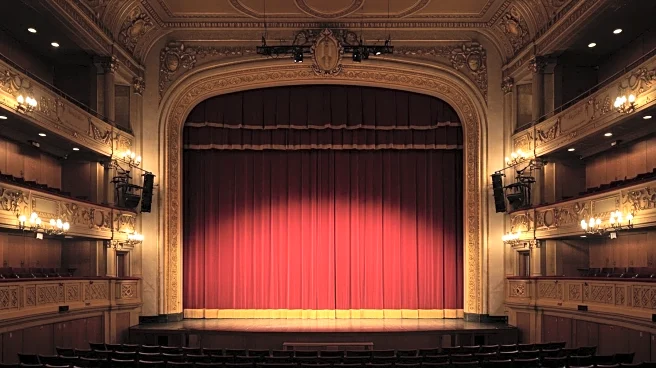What's Happening?
President Trump has taken an unprecedented step by appointing himself as the chair of the Kennedy Center board, a move that has traditionally been free from presidential influence. This decision marks a significant shift in the governance of the John F. Kennedy Center for the Performing Arts, a key cultural institution in Washington, D.C. Trump has also announced the recipients of the Kennedy Center Honors, a prestigious lifetime achievement award, further asserting his influence over the center's operations. This development is part of a broader effort by Trump to reshape arts and culture institutions in the United States.
Why It's Important?
The involvement of a sitting president in the operations of a major cultural institution like the Kennedy Center raises questions about the politicization of the arts. Traditionally, the Kennedy Center has operated independently, allowing for a diverse range of programming free from political influence. Trump's actions could set a precedent for future administrations, potentially altering the landscape of cultural institutions in the U.S. This move may also impact the types of programming and artists that receive support, influencing the cultural narrative and public access to the arts.
Beyond the Headlines
The decision to take control of the Kennedy Center could have long-term implications for the relationship between government and cultural institutions. It raises ethical questions about the separation of politics and the arts, and whether such influence could lead to censorship or a narrowing of artistic expression. The move may also prompt discussions about the role of federal funding in cultural institutions and the need for safeguards to maintain artistic independence.








